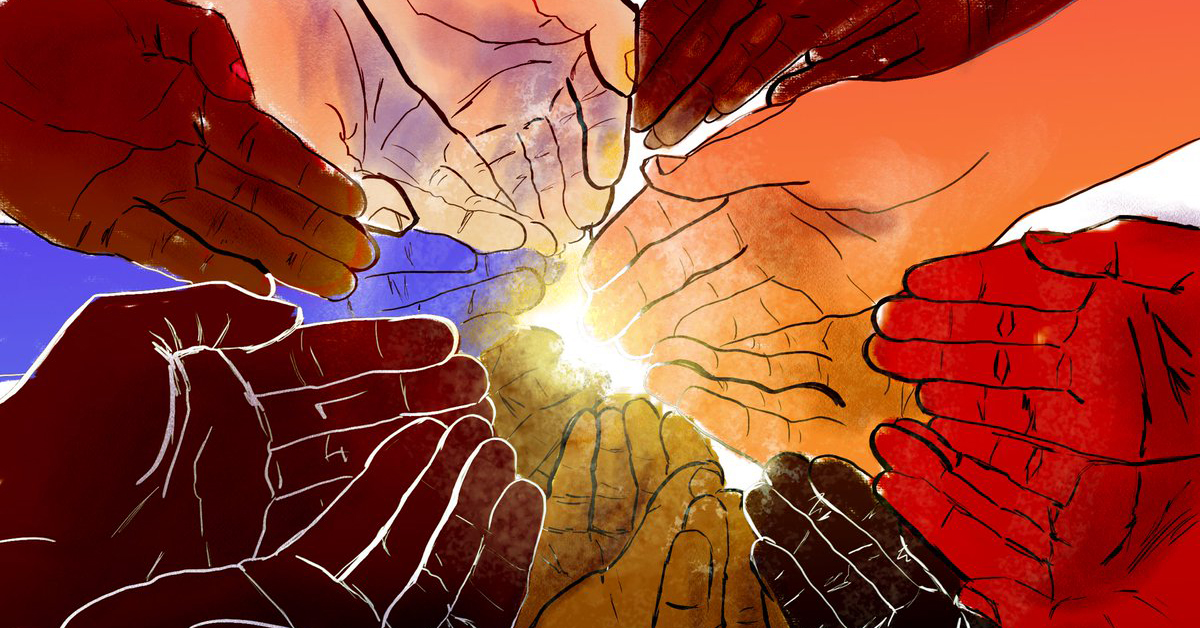“Let us therefore continue our triumphant march to the realization of the American dream. … Let us march on ballot boxes until the salient misdeeds of bloodthirsty mobs will be transformed into the calculated good deeds of orderly citizens.”
— Dr. Martin Luther King, Jr., Montgomery, Alabama, March 25, 1965
When Dr. King delivered his speech to the energized masses assembled in Montgomery, Alabama – 54 years ago today – he knew the fight wasn’t over. Thousands of grassroots organizers had marched 54 miles from Selma to Montgomery to protest racist policies and violence Black people faced when exercising their right to vote. The enraged, violent opposition to their very presence made clear the need for the National Voting Rights Act (NVRA). But even as his words stirred the souls of the thousands gathered at Alabama’s capital, Dr. King knew they were far from securing justice.
He was right. The fight continues. Today, the NVRA faces relentless attacks at the state level, and grassroots organizations across the country are pushing back against these disgraceful injustices to create an inclusive, fair democracy. We are inspired by the same fierce faith in every American’s right to vote that motivated thousands to march through mud and persevere through sweltering heat to Montgomery 54 years ago — and by Dr. King’s determination that one day every American citizen would have the same right to vote without fear of intimidation or violence.
So the march goes on. And even if the feet of today’s activists aren’t blistered by a 54-mile march, our democracy bears the scars of decades of injustice. But Dr. King’s legacy fuels our resolve, and we need every ounce of it to fight the systematic disintegration of voting rights happening across the country — and win.
After the U.S. Supreme Court gutted the NVRA in Shelby County v. Holder, state after state started putting up barriers to voting to stop people of color, people from low-income communities and other marginalized groups from accessing the ballot box.
Blavitize your inbox! Join our daily newsletter for fresh stories and breaking news.
One of the most egregious examples was in Georgia’s 2018 election, where then-Secretary of State and gubernatorial candidate Brian Kemp put 53,000 voter registration applications “on hold” for mismatched names — a policy that disproportionally affects people of color — and incorrectly purged 340,000 voters from the rolls. After an election sullied by voter suppression on such a massive scale that even Kemp’s opposing gubernatorial candidate Stacey Abrams was nearly blocked from voting, Kemp is now Georgia’s governor.
Just before the election, the U.S. Supreme Court upheld a law in North Dakota requiring voters to bring an ID to the polls with a residential address, leaving indigenous people — who often have PO boxes rather than street addresses, which don’t qualify — scrambling to obtain proper identification. Following the elections, legislatures in Michigan, Missouri and other states are now trying to nullify pro-democracy election reforms that voters approved at the polls.
The list of injustices goes on. But every day, grassroots organizers march forward in pursuit of state and local policy change to create fair and equal elections for all Americans.
We see the fruits of our labor in stories like the Florida Rights Restoration Coalition (FRRC), which worked to restore voting rights in the 2018 election to people with felony convictions who have served out their sentences. FRRC leader Desmond Meade faced roadblocks at every turn when trying to rebuild his life in Florida after his release from prison. When the state blocked his attempts to take the bar exam, he couldn’t understand why they wouldn’t allow him a fresh start. Within a few years, he became the leader of the FRRC and, despite a resounding chorus of naysayers, was finally told “yes” by voters at the ballot box.
Across the country, grassroots organizers continue to win. In New Mexico, both houses of the legislature have passed a bill to allow same-day voter registration and expand automated voter registration to state agencies. In New York — which has some of the country’s most restrictive voting laws — bold reform is underway, with same-day registration, early voting and voting by mail all part of an ambitious legislative wish list.
The work continues at places like Demos’ recent Inclusive Democracy Project meeting, where 48 people of color who are leading the march toward equal voting rights came together to share stories and strategize collaborative ways to ensure that everyone can exercise their right to vote without intimidation or fear.
Like Dr. King, we know the road to justice is long and winding, and the journey arduous. But we have faith that with the tireless work of the grassroots organizers, we will one day live in an America where every election — in every corner of the country — is free and fair for everyone.
